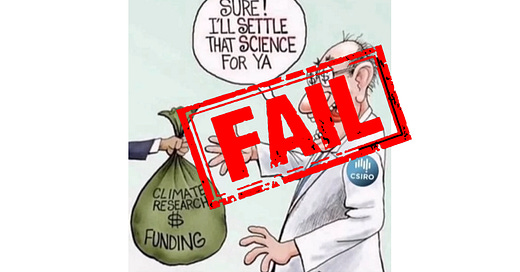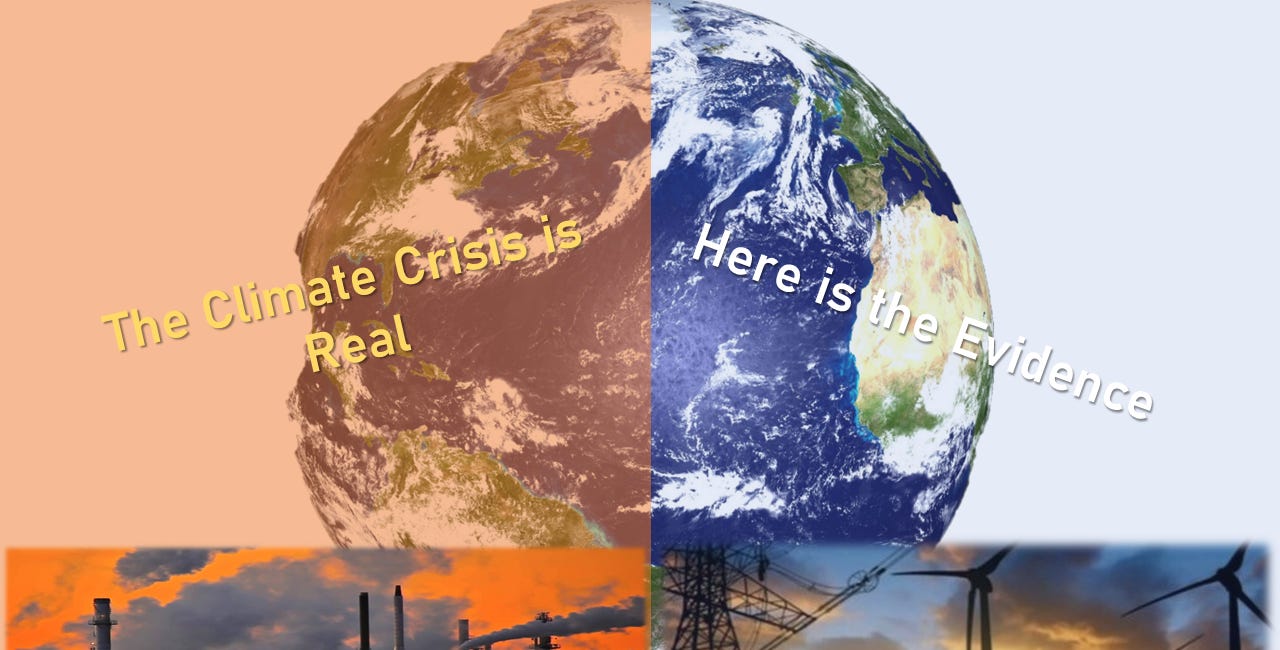In May of 2024, researchers John Kotcher, Niels G. Mede, John Besley, Edward W. Maibach, and Naomi Oreskes published a broad review of surveys conducted all around the globe regarding the public’s view on climate science. It turns out that a supermajority of people hold “moderate” to “great” trust in the messaging by scientists about the environment. Those who do not hold those views fit within a noticeably identifiable, and vanishingly small, minority.
Although the studies differed slightly, they largely defined those holding moderate trust as people who believe “most” of what climate scientists say or report about the environment. Those with great trust believe nearly all of what scientists say or report.
Demographic Differences
In 2021, the average among surveys held across the globe indicated that 93% of people held moderate or great trust in climate scientists. In North America, that number was 85%. The areas of the world with the lowest rates of moderate or higher trust, averaging 57%, were primarily in East Asia and the Pacific. Globally, the numbers rose from 2018 to 2021 (worldwide data from 2022 is incomplete). Some regions remained steady during that time, but carried very high numbers already, and only a few declined, such as in the United States. Across the entire world, the United States also has the highest proportion of people who believe that “human-caused climate change is not a reality,” at 16%.
In the United States, when skepticism traces political partisan lines, the difference between the two parties is twice as large as virtually anywhere else. People’s party affiliation trumps every other category. Put differently, an American’s party affiliation is more indicative of their beliefs about climate science than any other factor. Even religion seems to bear no statistically important correlation.
Elsewhere, so-called “free market” advocates and conservatives comprise the largest percentage of those holding middle to low levels of confidence. In most places, conservatives also self-identify as free market advocates and vice-versa, so these two groups really comprise only one.
What these numbers suggest is that conservatives and free market advocates function largely as one and the same on this issue, and it is this collective that has stoked the largest amount of distrust among the public for climate scientists. The majority of purveyors of misinformation on climate change issues come from self-identified conservatives (groups or individuals, including politicians), and specific industries (typically those whose products or processes are most harmful to the environment). In the United States, the single group responsible for the highest number of occurrences of distributing misinformation is self-identifying Republicans.
In other words, those whose bottom line would suffer the most from taking action to mitigate climate problems are also the ones inciting distrust among those who have been illuminating the public to those problems. For businesses, that bottom line is profit, while for politicians it is campaign contributions.
The Basis for Distrust
Misinformation about the science notwithstanding, there are several reasons behind people’s distrust for scientists themselves. Among the largest is “concern that incentive and funding structures bias climate scientists and their science.” Anecdotally, this seems to be the one that proliferates the most across social media. It generates memes like this one:
The Commonwealth Scientific and Industrial Research Organisation (CSIRO) is an Australian Government agency responsible for scientific research in many different fields.
The line of thinking proffered in memes like this essentially claims that climate scientists “create” scientific studies or “fix” results that provide further evidence of the crisis to help embolden “green” government policies. As most under-thought memes go, this defies both common sense and the reality of scientific funding.
From a common sense standpoint, why would nearly all scientists in the world reach the same or similar conclusions about the environment when it would be far more lucrative to “produce” science that helps fossil fuel companies? The idea that one could get a consensus among more than 97% of experts on a single issue built on lies is simply ludicrous. Relatedly, how would one explain how Exxon’s own scientists also reached the same conclusions? What benefits would politicians receive in following falsified scientific studies when polluting industries contribute far more money to political campaigns than any so-called ‘green’ organizations?
Some argue that reaching conclusions that “fall in line” help climate scientists procure funding. This exhibits a fundamental misunderstanding of how scientific funding works. Before explaining that, however, there is a strong argument that the funding of scientific studies needs reform. But this is not because scientists are running around making vast sums of money to produce bullshit science.
Rather, it is because to conduct scientific studies, no matter how critically important, acquiring money demands huge amounts of time and energy that would be better spent on the science itself. Studies focusing on more popular concerns also tend to get funding more than others. In any case, there is no guarantee that any amount of effort will result in receiving funding.
On funding itself, however, there is little chance of funding decisions biasing results. The Exxon scientists provide a sterling example. The primary reason for this is because the funding is applied for and received before any results are achieved. Funding applications require explaining the hypothesis—the question to be explored—followed by the methodology for reaching an answer. Most grants also require describing what other scientists have done on the matter to illustrate the relevance of or attempt at reproducibility in the current proposal. The money itself goes toward setting up and running the experiment.
While it is possible that certain unethical scientists could “fudge” their results to reach a specific conclusion, this is extraordinarily rare. Why? Because any result of note will be examined, tested, and retested by numerous other scientists. Faked results will not stay hidden for long. Just ask Francesca Gino, Yoshihiro Sato, or any of these people: Harvard Dana-Farber Cancer Institute President and CEO Laurie Glimcher, Executive Vice President and COO William Hahn, Senior Vice President for Experimental Medicine Irene Ghobrial, and Harvard Medical School professor Kenneth Anderson. The fact that we know these names is the exception that proves the rule.
The overwhelming majority of scientists do their work unnoticed by the public, and never face attacks against them directly. While findings “of note” sometimes garner public attention, most do not. This is because what is notable to scientists tends not to resonate with people uneducated in the topic matter. Indeed, even some results that receive public attention are misunderstood, including by the “science news” outlets reporting upon them, or at least misrepresented in the headline—like this one.
Scientists write papers that are obtuse to the general public because they do not write them for the general public. Just as no one would expect an engineer to send reports to architects in unnecessarily simplified language, potentially failing to address critical issues, no one should expect scientists to do the same. In our world of distorted priorities, few scientists ever acquire significant wealth for their work, even the well-known ones. The idea that some, let alone most, scientists would risk their reputations for the chance at some kind of fame is simply absurd.
Moreover, the level of recklessness and hypocrisy it requires to impugn an entire profession to make cheap political points is astonishing. For example, it has long been a trope to insult lawyers as scammers of one type or another, yet the jokes suddenly stop when someone is facing a criminal charge or lawsuit. Assaults against experts are often driven by the mean-spirited jealousy of people who lack the capability or gumption to learn even the basic concepts. These days, this kind of angry lashing out is ignited and emboldened by the the influence of social groups and media consumed by the attackers.
Conclusion
Many people proclaim not to trust or even watch mainstream (or any) media. In fact, claiming this almost seems in vogue in some circles. But viewpoints such as that most people “do not believe” in climate change as a manmade issue or that scientists are “settling the science” for illicit funds come directly from certain mainstream or ideological media. Like most dramatic claims made on matters of political concern, they almost always breakdown under even the simplest logical and evidence-based analysis. Skepticism about climate science and scientists is among them.
Source
For the research review discussed at the beginning of this article, see:
Kotcher, John. Niels G. Mede. John Besley. Edward W. Maibach and Naomi Oreskes. “Trust in climate science and climate scientists: A narrative review,” Plos Climate. May 23, 2024. Available here.
For a summary breakdown of climate science (which is already dated given the rapidity of change), see here.
There is No Escaping the Fact that there is a Climate Crisis
Visit the Evidence Files Facebook and YouTube pages; Like, Follow, Subscribe or Share!
***
I am a Certified Forensic Computer Examiner, Certified Crime Analyst, Certified Fraud Examiner, and Certified Financial Crimes Investigator with a Juris Doctor and a Master’s degree in history.
Today I work both in the United States and Nepal, and I currently run a non-profit that uses mobile applications and other technologies to create Early Alert Systems for natural disasters for people living in remote or poor areas. In addition, I teach Tibetan history and culture, and courses on the environmental issues of the Himalayas both in Nepal and on the Tibetan plateau. For detailed analyses on law and politics involving the United States, head over to my Medium page.




